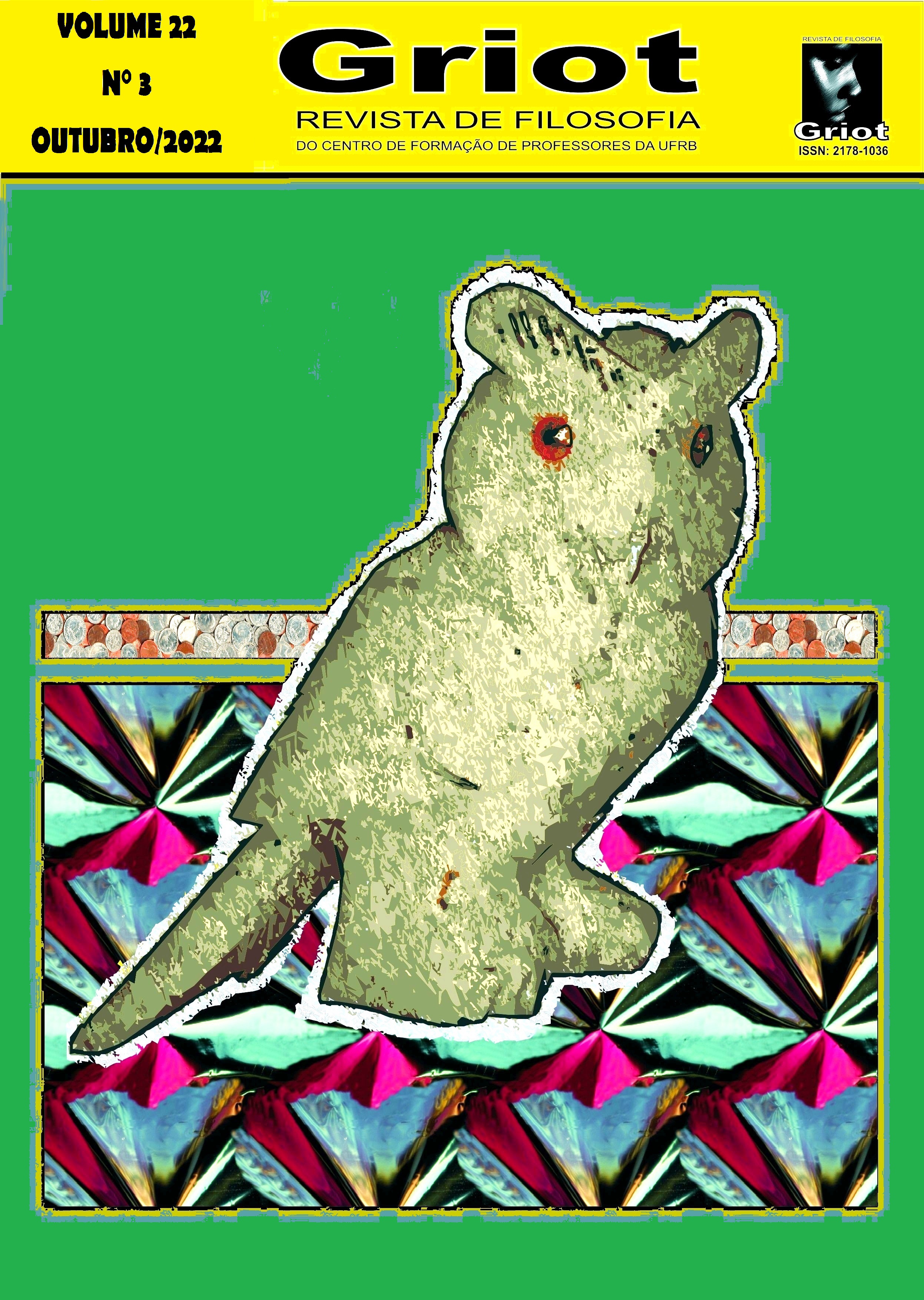The enunciation as a category of analysis in the production of the discourse(s) in Foucault
DOI:
https://doi.org/10.31977/grirfi.v22i3.3030Keywords:
Enunciation; Category of Analysis; Production of the Discourse(s); Michel Foucault.Abstract
The present work aims to discuss the idea that the enunciation may be a probable category of analysis, in an attempt to think the discourse(s), like its generation, in the theoretical framework proposed by Michel Foucault (1926-1984). The French Philosopher, developed the statement as category of analysis, in works like The Order of Things (1966) and The Archeology of Knowledge (1969), in a frame capable of allowing a certain autonomy to the formulation of a concept. In this way, the enunciation in the attempt to generate this same to a theory to be put up, would allow the gravitation in the mentioned discourses produced by the individual. The enunciation, in the Foucault’s thought, does not refer in stricto sensu to a grammatical or strictly linguistic framework, but allows the confluence in the formation of theoretical notions, or even in the frame of the discourse(s), making possible the consonance of ideas that base the discourses that prevail in the human sciences and wich outline de status quo. Being Foucault’s proposition of enunciation is a category not necessarily scientific, that is, without the magnitude of a composition of truth, as well as of a “true saying”. The enunciation, in the author’s proposal, contrasts with the discourse that deals with the nomenclature of truth and the mechanisms that institute the constant production of it, and wich they grant the epistemological conceptions (wich constitute epistemologies in force) in social, political, historical e and cultural spaces.
Downloads
References
AGAMBEN, Giorgio. O que é dispositivo?. In: AGAMBEN, Giorgio. O que é o contemporâneo? e outros ensaios. Trad. de Vinícius Nicastro Honesko. Chapecó: Argos, 2009, p. 25-54.
AUSTIN, John Langshaw. Quando dizer é fazer. Trad. de Danilo Marcondes de Souza Filho. Porto Alegre: Artes Médicas, 1990.
CANGUILHEM, Georges. O normal e o patológico. Trad. de Maria Thereza Redig de Carvalho Barrocas. 7. ed. Rio de Janeiro: Forense Universitária, 2019.
CASTRO, Edgardo. Vocabulário de Foucault. Trad. de Ingrid Müller Xavier. 2 ed. Belo Horizonte: Autêntica, 2016.
FOUCAULT, Michel. As palavras e as coisas: uma arqueologia das ciências humanas. Trad. de Salma Tannus Muchail. 9. ed. 3ª reimp. São Paulo: Martins Fontes, 2007.
FOUCAULT, Michel. O governo de si e dos outros: curso no Collège de France (1982-1983). 2ª reimp. Trad. de Eduardo Brandão. São Paulo: Martins Fontes, 2010.
FOUCAULT, Michel. A arqueologia do saber. Trad. de Luiz Felipe Baeta Neves. 8. ed. Rio de Janeiro: Forense Universitária, 2012.
FOUCAULT, Michel. A ordem do discurso: aula inaugural no Collège de France, pronunciada em 02 de dezembro de 1970. Trad. de Laura Fraga de Almeida Sampaio. 23. ed. São Paulo: Loyola, 2013.
FOUCAULT, Michel. Estruturalismo e Pós-Estruturalismo. In: FOUCAULT, Michel. Ditos e escritos, vol. II: arqueologia das ciências e história dos sistemas de pensamento. Trad. de Elisa Monteiro. 3. ed. Rio de Janeiro: Forense Universitária, 2013a, p. 322-350.
FOUCAULT, Michel. Aulas sobre a vontade de saber: curso no Collège de France (1970-1071); seguido de O Saber de Édipo. Trad. de Rosemary Costhek Abílio. São Paulo: Editora WMF Martins Fontes, 2014.
FOUCAULT, Michel. Sobre a história da sexualidade. In: FOUCAULT, Michel. Microfísica do poder. Trad. de Angela Loureiro de Souza. 28. ed. Rio de Janeiro: Paz & Terra, 2014a, p. 363-406.
FOUCAULT, Michel. Malfazer, dizer verdadeiro: função da confissão em juízo: curso em Louvain, 1981. Trad. de Ivone C. Benedetti. São Paulo: Martins Fontes, 2018.
LORENZINI, Daniele; BOEHRINGER, Sandra. Le désir comme “transcendental historique” de l’histoire de la sexualité. In: LORENZINI, Daniele. Foucault, lá sexualité, l’antiquité. Paris: Éditions Kimé, 2016, p. 137-149.
RABINOW, Paul; DREYFUS, Hubert Lederer. Michel Foucault: uma trajetória filosófica: para além do estruturalismo e da hermenêutica. Trad. de Vera Portocarrero e Gilda Gomes Carneiro. 2. ed. rev. Rio de Janeiro: Forense Universitária, 2013.
REVEL, Judith. Dicionário Foucault. Trad. de Anderson Alexandre da Silva. Rio de Janeiro: Forense Universitária, 2011.
VEYNE, Paul. Foucault: seu pensamento, sua pessoa. Trad. de Marcelo Jacques de Morais. Rio de Janeiro: Civilização Brasileira, 2011.
Downloads
Published
How to Cite
Issue
Section
License
Copyright (c) 2022 Dirceu Arno Krüger Junior

This work is licensed under a Creative Commons Attribution 4.0 International License.
The authors who publish in Griot: Revista de Filosofia maintain the copyright and grant the magazine the right of first publication, with the work simultaneously licensed under the Creative Commons Attribution 4.0 International License, allowing sharing and adaptation, even for commercial purposes, with due recognition of authorship and initial publication in this journal. Read more...









































































